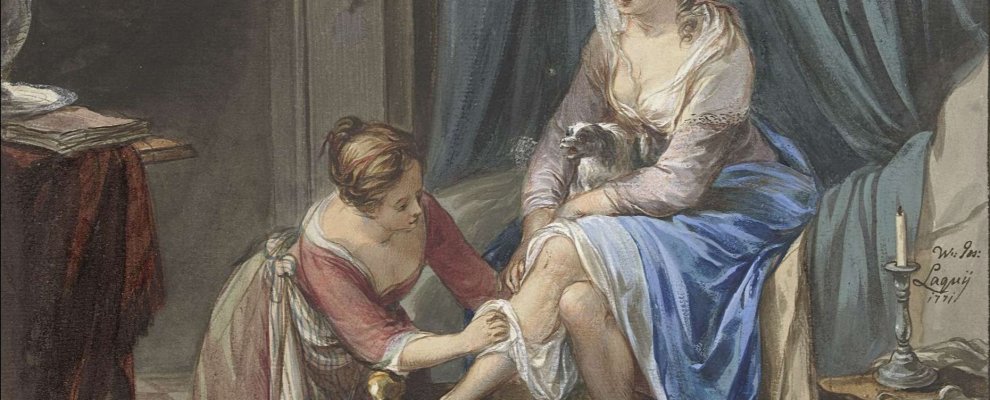How the upper classes stayed clean and battled body odour in the 18th century
Bathing
Despite the popularity of spa towns during the Regency Period, it was commonly believed that bathing was unhealthy as soaking in water, and especially hot water, was thought to let disease enter the body. When Georgians did take a bath, they would therefore do so without removing all of their clothes – a habit that remained until the end of the nineteenth century. It is said that iconic dandy Beau Brummel bathed every day, believing that men should smell clean even without the use of perfumes. It was common for the face, feet and hands to be washed daily from a basin, however, individuals typically washed their full bodies on a weekly to fortnightly basis.
Teeth Cleaning
Dental hygiene consisted of little more than a toothpick and perhaps a wiping down of the gums with a cloth. A letter from Lord Chesterfield to his son urges the use of a sponge and warm water to scrub the teeth each morning. Gunpowder and alum were also recommended. In the early eighteenth century Italian company Marvis – which still exists today – began making toothpaste, and by the late eighteenth century the first dentures, gold crowns and porcelain teeth were constructed. George Washington’s dentist, John Greenwood (1760-1819), invented the first known “dental foot engine” in 1790, which he adapted from his mother’s foot pedal spinning wheel.
Male Grooming
It was fashionable for Georgian men to be beardless, and in fact satirical cartoons would often use bearded men to indicate slovenliness and even social ineptitude. The invention of cast steel introduced a whole new range of razors. Accompanying the razor was the introduction of many more male grooming products from face creams to powders and scents. Men in the period also began shaving at home as opposed to visiting a barbers, however upper class men would (of course!) have this daily task performed by a servant.
Ladies at the toilette
In the eighteenth century the ritual of the toilette for upper class women reached new heights of extravagance. The progress of the toilette would last hours, and involved many stages. Private activities included grooming, sponge bathing and hair dressing – all carried out by a maid. Public elements such as eating breakfast, writing letters, entertaining friends, and picking clothes to be worn for the day would then follow. The wealthier the lady, the more elaborate and lengthy the process would be.
Archives
- October 2021
- August 2021
- July 2021
- June 2021
- May 2020
- April 2020
- March 2020
- February 2020
- January 2020
- November 2019
- October 2019
- July 2019
- February 2019
- January 2019
- December 2018
- November 2018
- November 2017
- August 2017
- May 2017
- December 2016
- August 2016
- June 2016
- April 2016
- March 2016
- February 2016
- January 2016
- December 2015
- November 2015
- August 2015
- June 2015

